Create your own Zero-waste Data Physicalisation (or Fizzy Data, for short!)
In this activity that requires both creativity and understanding a data set, learners will create a fun, physical representation of a provided data set using the materials and tools available.
Take a look at our slides introducing the activity, data set, and some inspiration from past workshop participants’ creations!
The Kits
The kits can contain whatever reusable crafting materials or random objects you have lying around (the idea is to reduce waste by encouraging repurposing of objects, and also to use objects which can be easily dissembled and used again and again). However, if you’d like to get an idea of what you could use, or assemble a kit from scratch, we have a priced-up list of items you could purchase:
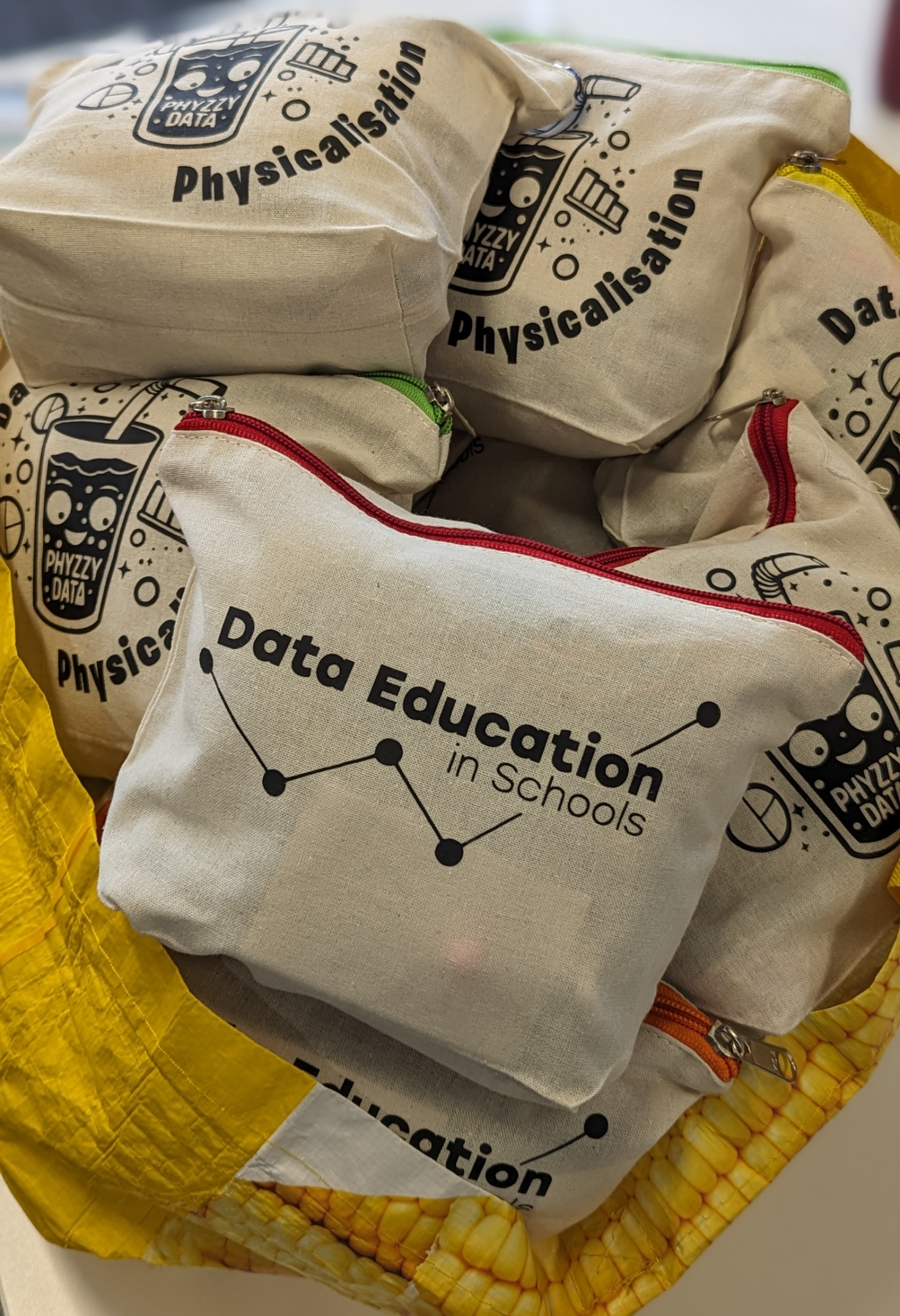
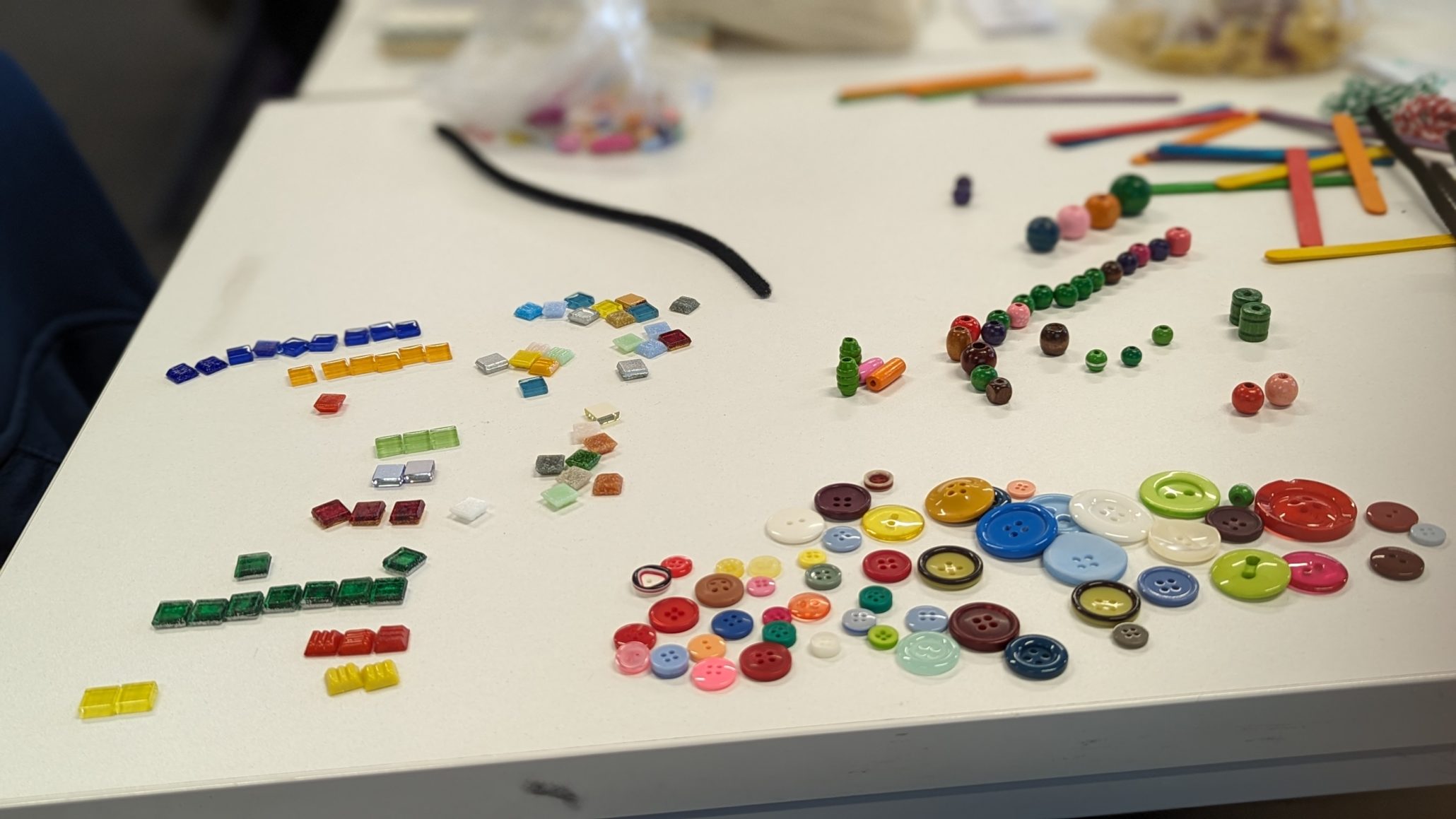
The Data
We have used a simplifed version of a data set from a 1974 psychology study of American undergraduate students about appropriateness of different behaviours in different locations.
This slide deck contains a version appropriate for secondary school learners: Secondary data set
This slide deck contains a version appropriate for primary school learners: Primary data set
If you would like to collect your own data on appropriateness of different behaviours, you can use this Microsoft form as a template.
We are in the process of gathering more data sets that would work well for this activity, which we will keep adding to below. You can also look through our Data Sets resource for more ideas!
Planets data set: This data table, perfect for tying into a unit on space, compares features of the eight planets such as mass, orbital distance, length of day, and number of moons.
Inspiration
Here is what some of our previous teacher workshop participants have created!

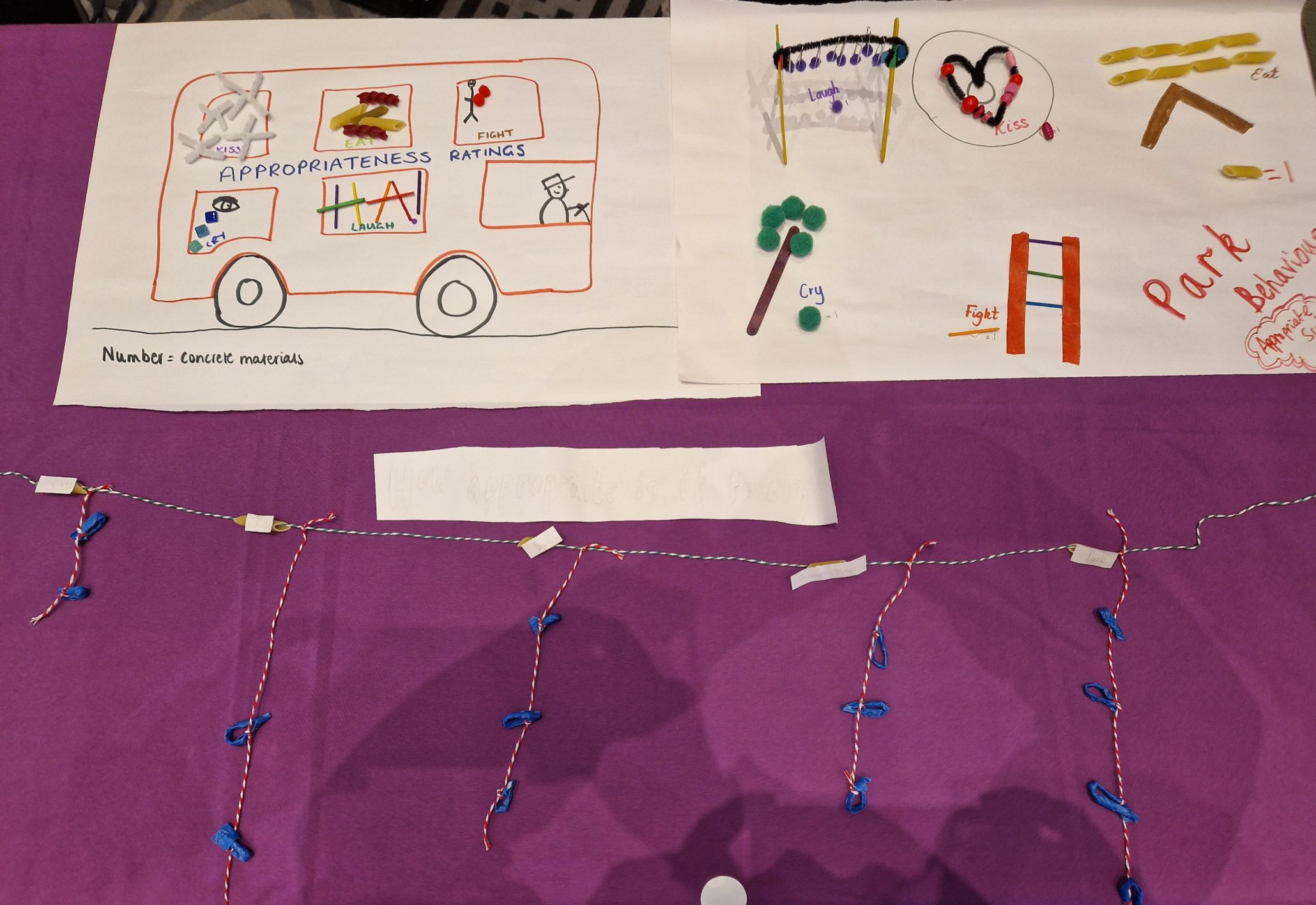
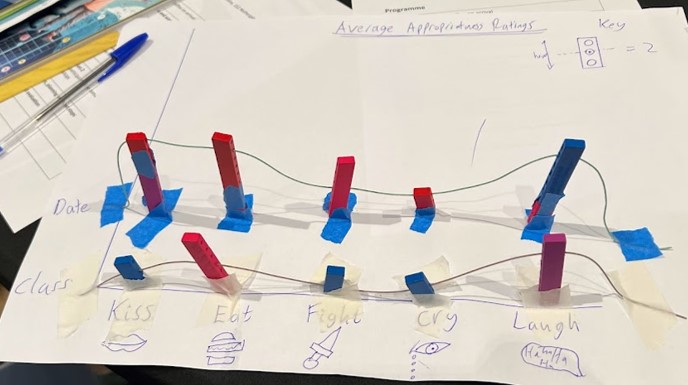
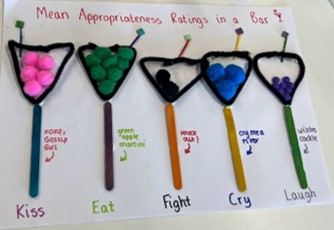
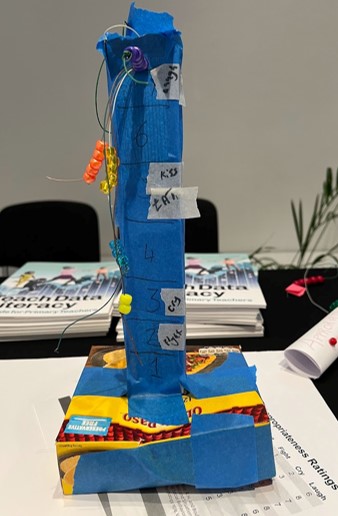
Note: This activity was inspired by a workshop some of our team members attended at the Information+ 2023 conference in Edinburgh. The workshop was organised by Sarah Hayes, Trevir Hogan, Rebecca Noonan and Denise Heffernan (Munster Technological University); Kim Sauve (University of Bath); and Martin Lindrup (Aalborg University).
© Data Education in Schools, University of Edinburgh, 2024. This resource is licensed CC BY-NC 4.0, unless otherwise indicated.



